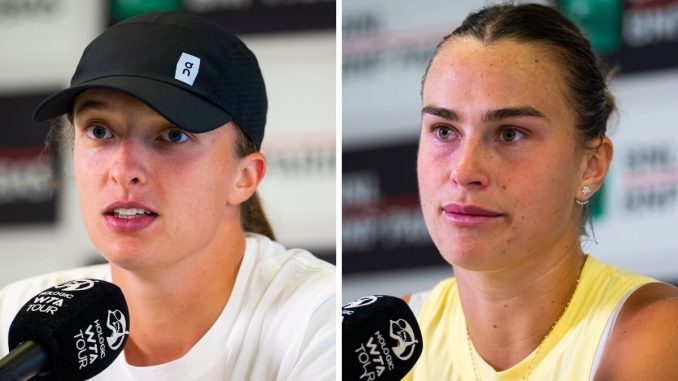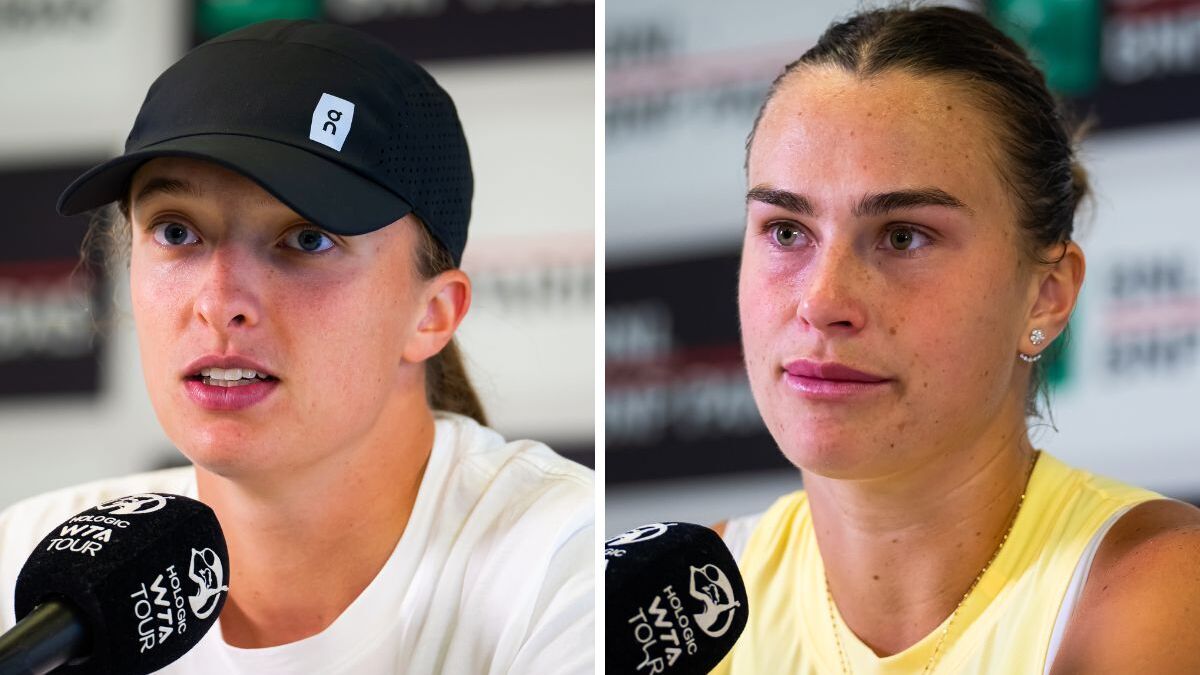
Iga Swiatek and Aryna Sabalenka, two of the top competitors in women’s tennis, have been at the center of an intriguing debate ahead of their clash at the Italian Open. Swiatek, a Polish tennis star and reigning world number one, dismissed a theory posited by her Belarusian counterpart, Sabalenka. This disagreement adds an additional layer of drama to their anticipated match.

Background and Context
Iga Swiatek and Aryna Sabalenka have developed a compelling rivalry on the WTA Tour. Swiatek, known for her powerful baseline play and tactical intelligence, has swiftly ascended to the pinnacle of women’s tennis, capturing several Grand Slam titles along the way. Sabalenka, with her aggressive style and formidable serve, has also made significant strides, consistently challenging the top players and securing her position among the elite.
The Controversial Theory
The controversy arose when Sabalenka suggested that the WTA’s ranking system and scheduling practices might favor certain players over others. Specifically, Sabalenka implied that the system’s inherent biases might give players like Swiatek an undue advantage, potentially influencing their head-to-head encounters and overall performance on tour. This theory revolves around the idea that the rankings and scheduling could be manipulated in ways that benefit players from certain countries or those with particular playing styles.
Swiatek’s Response
Swiatek responded to Sabalenka’s theory with strong words, asserting that such claims were baseless and lacked evidence. She argued that the WTA’s ranking system is designed to be as fair and impartial as possible, reflecting players’ performances across various tournaments. According to Swiatek, the rankings and scheduling are determined by transparent criteria that apply equally to all players, regardless of their nationality or playing style.
Swiatek emphasized the importance of focusing on performance and improvement rather than attributing one’s challenges or shortcomings to external factors. She suggested that success in tennis is primarily a result of hard work, consistency, and mental fortitude, rather than any perceived biases within the system.
Impact on Their Rivalry
This public disagreement has added a new dimension to the Swiatek-Sabalenka rivalry. Both players are known for their competitive spirit and determination, and this clash of perspectives could heighten the intensity of their on-court battles. Fans and analysts are keenly watching to see how this controversy might influence their performances and interactions in upcoming matches, particularly at the Italian Open.
Broader Implications
The debate between Swiatek and Sabalenka also highlights broader issues within professional tennis. It raises questions about the fairness and transparency of the ranking system, the scheduling of tournaments, and the potential influence of external factors on players’ careers. While the WTA strives to maintain an equitable system, such discussions underscore the need for continual evaluation and improvement to ensure that all players have a level playing field.
Additionally, this controversy reflects the pressures and challenges faced by top athletes. Competing at the highest level involves not only physical and technical prowess but also navigating the psychological and political aspects of the sport. How players manage these aspects can significantly impact their performance and career trajectory.
Conclusion
The disagreement between Iga Swiatek and Aryna Sabalenka regarding the fairness of the WTA’s ranking and scheduling systems adds an intriguing subplot to their rivalry. Swiatek’s firm dismissal of Sabalenka’s theory underscores her belief in merit-based success and the integrity of the system. As they prepare to face each other at the Italian Open, this controversy will undoubtedly be in the spotlight, potentially influencing their performance and the dynamics of their rivalry. Beyond the immediate clash, this debate invites ongoing scrutiny and discussion about the structures governing professional tennis, aiming to ensure fairness and equity for all competitors.
Leave a Reply